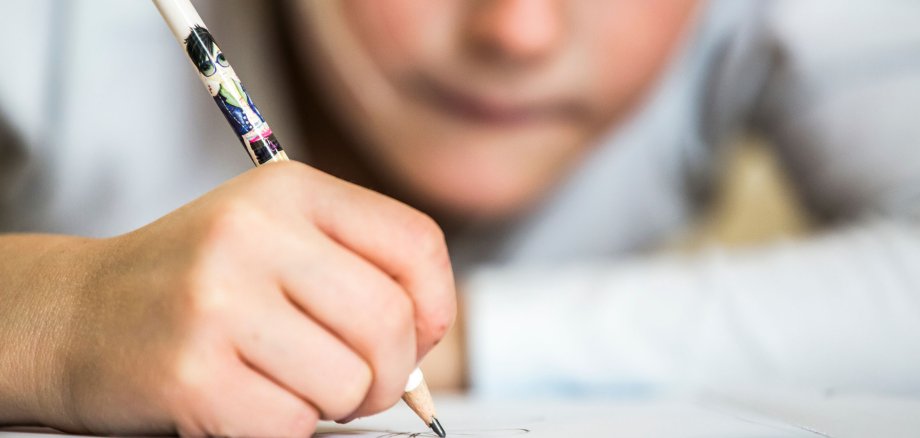Sustainable education: district supports primary schools
Think and act in a way that is fit for the future: This is the goal of the nationwide initiative "Education for Sustainable Development" - also in Waldeck-Frankenberg. The district actively supports schools in the district area in the implementation of the sustainability strategy and provides them with concrete measures for this purpose, which have now been presented to the teachers in an online event.
Sustainability plays a central role in almost all areas of life. "Education in this area is so crucial because it enables - especially our children and young people - to understand the impact of their actions - and empowers them to make responsible decisions," says District Administrator Dr Reinhard Kubat at the digital meeting, which was attended by representatives from the political ranks of the district committee and district council, in addition to numerous educators who were connected online.
The district's schools department has developed concrete concepts to support sustainable education in cooperation with other partners: For primary schools, it will offer the ESD diploma - "Clever macht Zukunft" ("Clever makes the future") from the summer onwards, the content and organisational coordination of which it will take over completely. The pupils can take a basic course with four or an advanced course with six topic modules - whether climate, environment, agriculture, nature, animal welfare, nutrition, energy production, sports, children's rights, integration and much more. Their contents are based on the curriculum of the Hessian Ministry of Education and Cultural Affairs, the principles of the Hessian Education and Training Plan and the United Nations Sustainable Development Goals.
All topics are prepared and followed up in class, the practical lessons take place mainly at extracurricular learning sites. The implementation period is freely selectable for participating school classes. At the end, the children receive a participation diploma. The educational offers are supported by the specialist services of agriculture, sports and youth work and social affairs within the district administration as well as the Network for Tolerance, the Border Worlds Geopark or the specialist office for migration and integration of the district as well as by NABU, the National Park and the nature parks, Hessenstein Castle and many other clubs and associations from Waldeck-Frankenberg. The state of Hesse is also on board - especially in the conception and implementation of educational days, ESD expert days and free climate training.
In addition to the ESD diploma, the district also offers primary schools the opportunity to be certified as an ESD school: The aim is to recognise sustainable activities that are incorporated into lessons, everyday school life and organisation in the long term. In order to become certified, the schools - in addition to participating in the ESD diploma - work on two long-term projects. Growing a fruit and vegetable garden to produce sustainable food is just one example. After an implementation period of one to two years, they receive the ESD school award.
The online event also provided the participants with further information - through presentations by the ESD state coordinator Tina Schauer, Eva-Maria Kohlmann from the University of Kassel, Dr Berthold Langenhorst from NABU Waldeck-Frankenberg, Franz Harbecke from the world shop Korbach, ESD coordinator Raphael Leibfacher - and through speeches by MPs Armin Schwarz, Dr Daniela Sommer and Daniel May.
"With the Education for Sustainable Development programmes, the district wants to actively contribute to ensuring that school is and remains a place of learning for social justice," emphasise Claudia Knublauch, Head of the Schools and Education Department, and Raphael Leibfacher. In addition to the educational concepts the district offers, it therefore also supports the schools financially. "With this commitment, the district can make a small contribution to shaping a peaceful and sustainable society."
